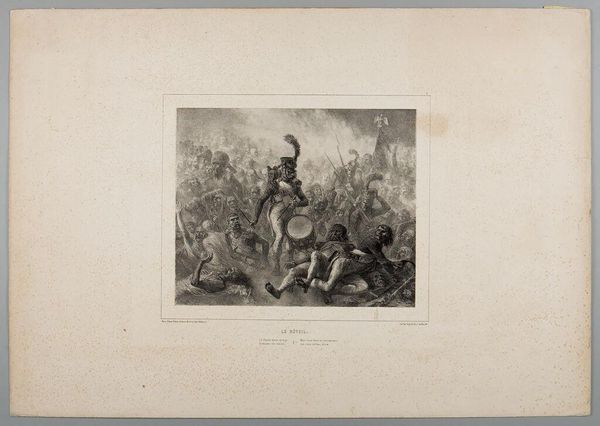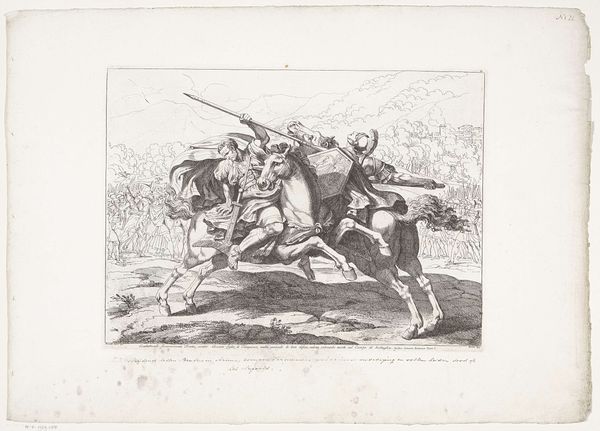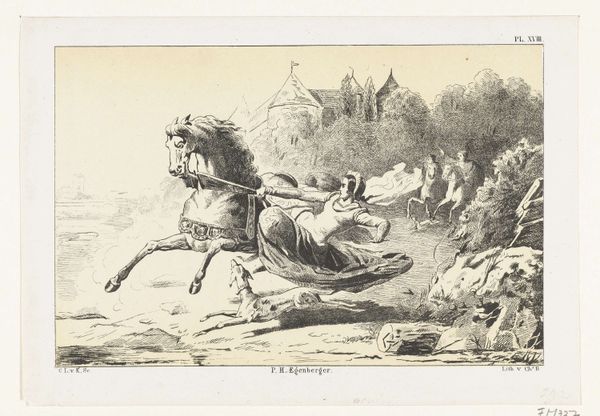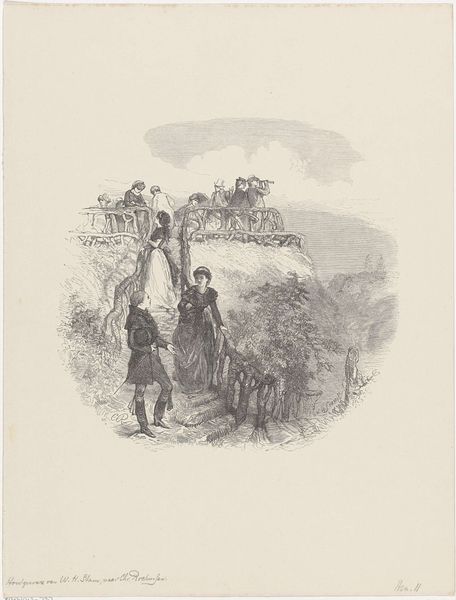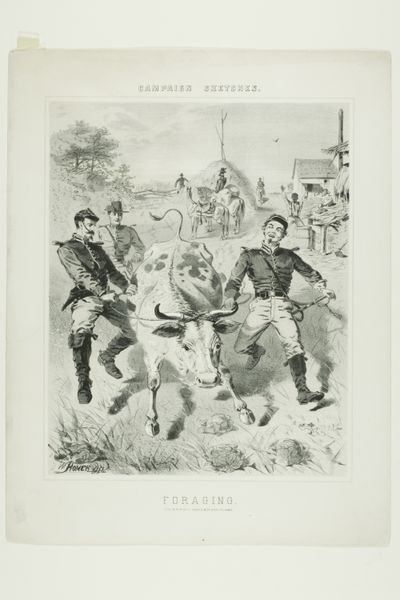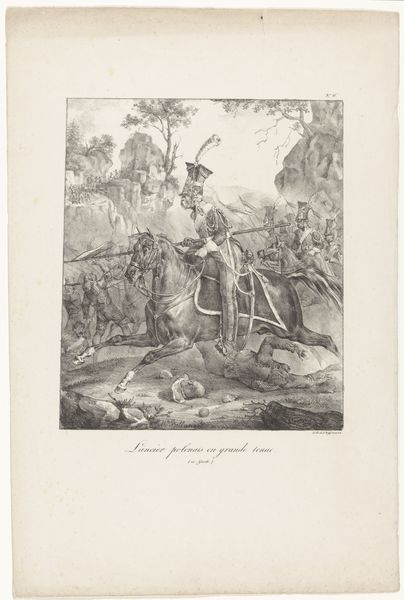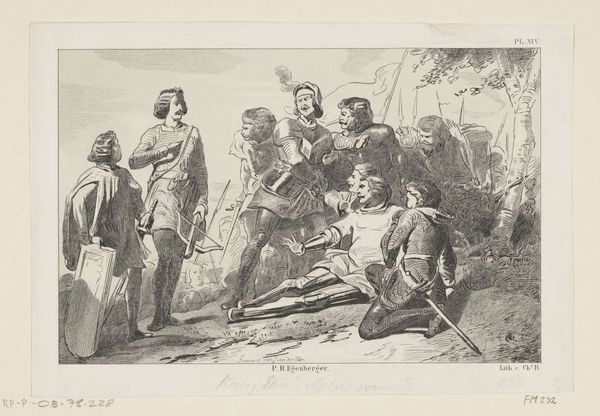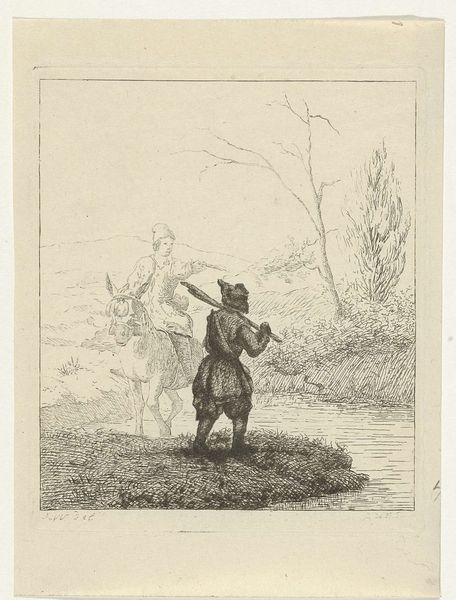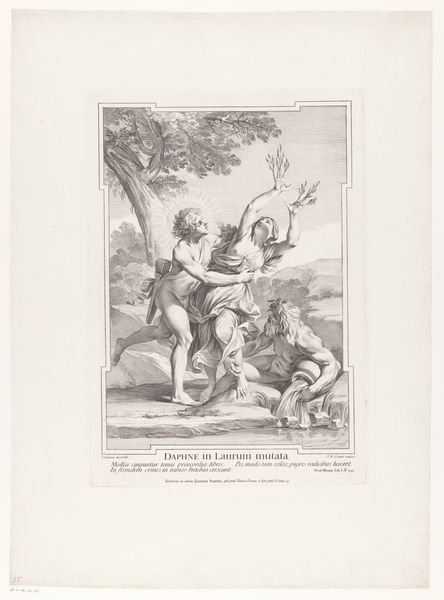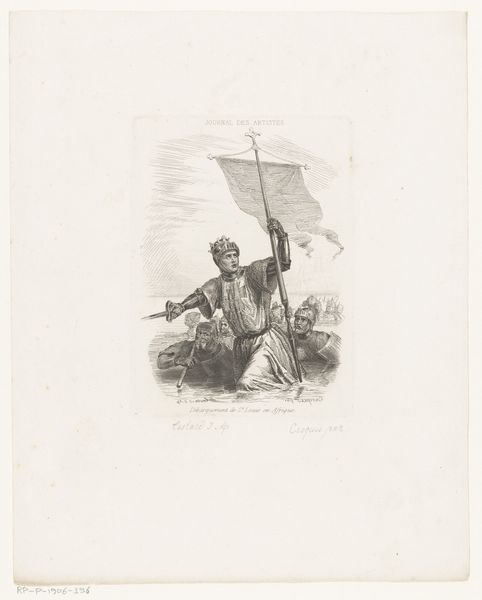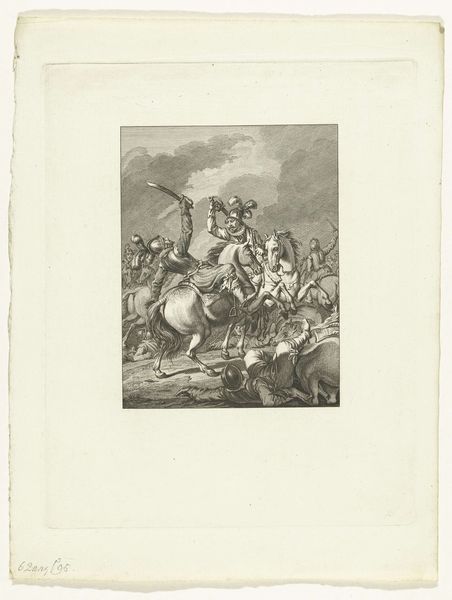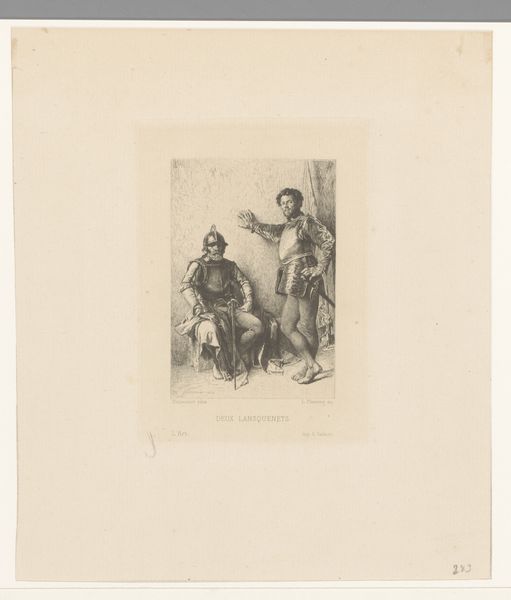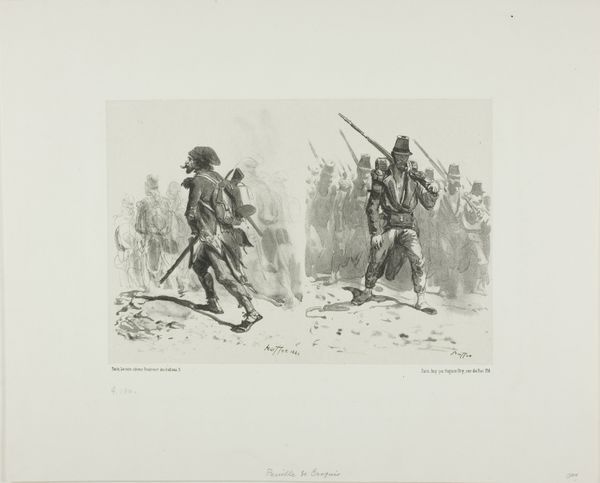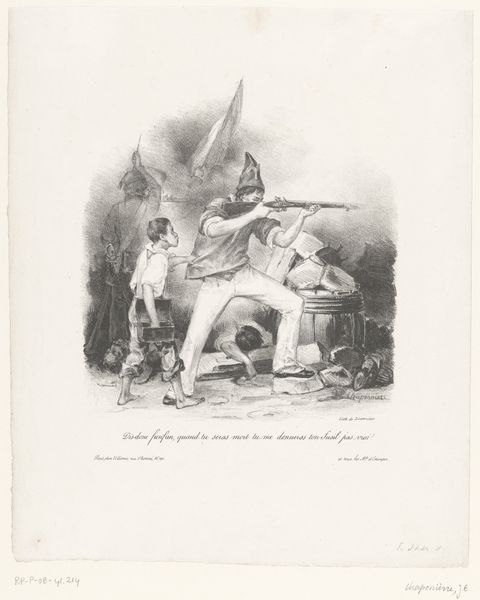
drawing, lithograph, print, etching, paper, pencil, charcoal
#
drawing
#
narrative-art
#
lithograph
# print
#
etching
#
pencil sketch
#
charcoal drawing
#
figuration
#
paper
#
pencil drawing
#
pencil
#
genre-painting
#
charcoal
#
watercolor
#
realism
Dimensions: 357 × 277 mm
Copyright: Public Domain
Curator: Alright, let's dive into Winslow Homer's "Campaign Sketches: Our Jolly Cook," created around 1863. It's a lithograph and etching—a fascinating print. What's your initial take? Editor: Energy! Sheer, unbridled energy. This figure leaps off the page, seemingly unbound by the constraints of the sketched setting. He reminds me of some ecstatic Dionysian figure or something—definitely bursting with exuberance! Curator: Interesting parallel! Yes, it captures a real liveliness. Notice how the soldiers in the background, sketched more subtly, are observing him? The "cook" is performing for them, perhaps? Or is it something deeper? Editor: Those observing figures in the backdrop look to me as though they've seen a thing or two, as though they are battle-worn and trying to forget through observation—desperately clinging to joy amidst hardship. His dance becomes a momentary escape, or, more subtly, maybe they’re simply voyeurs captivated by his free movements. His steps tell the tale of a shared humanity… a sense of place. Curator: Precisely. And the cook himself becomes a focal point—a symbol, as you put it, of resilience and even perhaps defiance. In a war context where human existence feels futile at times, art acts as a cultural mirror for expression. Editor: This act contrasts sharply with the visual language used. In art, contrast plays a huge role in symbolism. The artist captures freedom through the etching and stark lines that bring it to life. To some extent it also challenges conventional war depiction… It poses deeper questions regarding not only human value but dignity in the context of military servitude, doesn't it? Curator: It certainly does. Even the phrase 'our jolly cook' sounds sardonic at the least and carries so much significance. This prompts reflection on a much grander stage—Homer’s work opens discussions that challenge us on perceptions then, while urging empathy at present—and is what great art should evoke, after all! Editor: In this one simple joyful visual that masks something much more complicated! Thank you for your thoughtful insights; they have truly resonated with my soul!
Comments
No comments
Be the first to comment and join the conversation on the ultimate creative platform.
